Steering Committee
National Aeronautics and Space Administration
 Dr. Kenneth Suder, Chair
Dr. Kenneth Suder, Chair
NASA Glenn Research Center
National Aeronautics and Space Administration
Email: kenneth.l.suder@nasa.gov
Dr. Suder joined NASA Glenn in 1983. He holds a Ph.D. degree in Mechanical Engineering from Case Western Reserve University. His experience includes computational and experimental research in multistage turbomachinery for advanced air breathing propulsion systems. He is most noted for his contributions to the NASA Rotor 37 and Rotor 67 Benchmark data sets used for CFD validation. Dr. Suder has over 30 Publications – 21 Refereed publications, 10 Journal of Turbomachinery publications, and 1 book chapter: “Improvement of Aeropropulsion Fuel Efficiency Through Engine Design”. He is an ASME FELLOW, he chaired the American Society of Mechanical Engineers (ASME) Turbomachinery Technical Committee from 2010-2013, and he is currently the government representative on the ASME International Gas Turbine Institute’s Executive Committee.
Dr. Suder has also held several key leadership roles within the NASA Aeronautics Research Mission Directorate Programs. As the Chief Technologist for NGLT (Next Generation Launch Technology) TBCC (Turbine Based Combine Cycle) Revolutionary Turbine Accelerator project and the Principal Investigator for NASA (Fundamental Aeronautics Program) Hypersonic project 1999-2010, he led the development of a Mach 3-4 turbine engine for the first stage of a 2-stage to orbit launch system. From 2010-2014 Ken was the Sub-Project Manager for Propulsion Technology in the Environmentally Responsible Aviation Project, leading combustor, propulsor and core turbomachinery research & development efforts to demonstrate enabling technologies to meet the NASA Subsonic transport goals to reduce fuel burn, emissions, and noise. From 2014-2019 Ken was the Chief of the Turbomachinery and Turboelectric Systems Branch, and in April, 2019 he was selected as the NASA Senior Technologist for Airbreathing Propulsion at the NASA Glenn Research Center.
Federal Aviation Administration
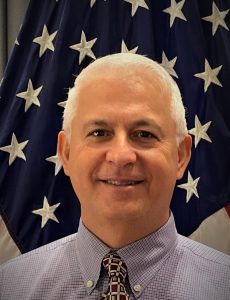 Levent Ileri, Vice Chair
Levent Ileri, Vice Chair
Office of Environment and Energy
Federal Aviation Administration
Email: levent.ileri@faa.gov
Mr. Ileri is the Program Manager for the Continuous Lower Energy, Emissions, and Noise (CLEEN) technology development program within the Federal Aviation Administration (FAA) since January 2014. Under CLEEN, the FAA and industry cost share the development of technologies for civil subsonic jet aircraft to reduce fuel burn, emissions, and noise, and advance the development of “drop-in” alternative fuels. The CLEEN program is a principal tool of the Next Generation Air Transportation System (NextGen) to accelerate development of environmentally promising aircraft technologies and sustainable alternative fuels.
Mr. Ileri joined the FAA in 2003 and served in FAA’s Aviation Safety / Flight Standards and NextGen organizations. As a Scientific and Technical Advisor from 2007 to 2014 in the FAA’s NextGen organization, Mr. Ileri conducted research, engineering and development activities, demonstrations, and business case analysis and concept validations for a number of NextGen programs, including but not limited to Integrated Arrival/Departure Control Services, Optimized Route Capability, Vertical Conformance Verification, Staffed NextGen Towers, and Data Communications projects. Mr. Ileri worked with the RTCA SC-214 special committee members and developed standards to define safety, performance and interoperability requirements for Air Traffic Services supported by data communications.
Mr. Ileri has received his M.Sc in Aerospace and Mechanical Engineering from the University of Arizona (1995), and M.Sc in Engineering Sciences (1990) and B.Sc. in Civil Engineering (1988) from the Middle East Technical University in Ankara, Turkey. Mr. Ileri has authored multiple publications in the field of human factors, fracture mechanics, composite materials, intelligent motion control, electronic packages, and oil spill modeling in marine environments.
Cecilia Shaw, PPSA Support Specialist
Office of Environment and Energy
Federal Aviation Administration
Email: Cecilia.shaw@faa.gov
Department of Energy
 Dr. Don Ferguson
Dr. Don Ferguson
National Energy Technology Laboratory (NETL).
Department of Energy
Email: donald.ferguson@netl.doe.gov
Dr. Don Ferguson is a research engineer in the Energy Conversion Engineering Group at the Department of Energy’s National Energy Technology Laboratory (NETL). Since starting at NETL in 2002, he has been engaged in experimental and computational combustion studies. Current research interest focus on exploring the potential of utilizing continuous detonation wave combustion to enhance thermal efficiency for gas turbine engines. Work in this area has facilitated the development formal and informal collaborations with additional government agencies (Air Force Research Laboratory, Naval Research Laboratory and NASA Glenn Research Facility, among others). Additional opportunities for collaboration have resulted from Don’s current role as the Department of Energy’s representative on the PPSA Leadership Team and VAATE/ATTAM Steering Committee.
Dr. Ferguson is an active member of AIAA and ASME, as well as participating in a STEM/STEAM activities such as DOE’s Science Bowl and as a coach for First Lego League Junior. Education includes a doctorate and master’s in mechanical engineering (West Virginia University), Bachelor of Science in aerospace engineering (West Virginia University) and a master’s in geographical information systems (Penn State University).
Department of Defense
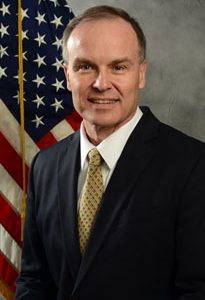 Dr. Robert Hancock
Dr. Robert Hancock
Aerospace Systems Directorate of the Air Force Research Laboratory
Department of the Air Force
Email: robert.hancock.3@us.af.mil
Dr. Robert Hancock is the Deputy for Science of the Turbine Engine Division of the Aerospace Systems Directorate of the Air Force Research Laboratory. He graduated with a Bachelor of Science and Master of Science in mechanical engineering from Brigham Young University and with a doctorate in mechanical engineering from the University of Illinois at Urbana-Champaign. He is responsible for the in-house research and development activities of the Turbine Engine Division and for R&D interactions with universities, small businesses and engine manufacturers.
Dr. Hancock is a fellow of the American Society of Mechanical Engineers and an associate fellow of the American Institute of Aeronautics and Astronautics (AIAA). Dr. Hancock served for four years as an officer in the United States Air Force prior to his career as a civilian in the Air Force Research Laboratory.
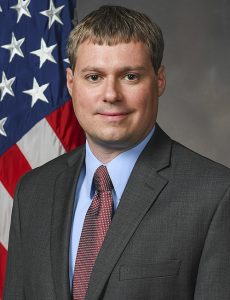 Dr. S. Alex Schumaker
Dr. S. Alex Schumaker
Air Force Research Laboratory
Department of the Air Force
Email: stephen.schumaker.1@us.af.mil
Dr. Alex Schumaker is a senior research engineer in the Turbine Engine Division of the Aerospace Systems Directorate of the Air Force Research Laboratory. His primary focus area is the development of Rotating Detonation Engines (RDE) for Air Force applications and leads an integrated 6.1 to 6.3 RDE development program. Dr. Schumaker is currently acting as the Turbine Engine Division Principle Scientist where he is responsible for in-house research and development activities across the division.
Prior to joining the Turbine Engine Division in February 2019, he spent 10 years with the Rocket Propulsion Division Combustion Branch as branch technical advisor and a researcher where he oversaw an in-house research portfolio for both rocket engines and motors including work in fuels, injectors, combustion stability, rotating detonation rocket engines, carbon-carbon materials and multi-fidelity modeling and simulation.
Dr. Schumaker received a B.S. in Aerospace Engineering from The Ohio State University in 2004 and performed his graduate work in Aerospace Engineering at the University of Michigan receiving his masters in 2006 and his Ph.D. in 2009. He is an associate fellow of the American Institute of Aeronautics and Astronautics (AIAA).
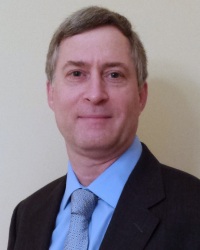 Kevin Kerner
Kevin Kerner
Aviation Development Directorate (ADD)
Department of the U.S. Army
Email: kevin.a.kerner.civ@mail.mil
Mr. Kevin Kerner is the Power Focus Area lead for the Aviation Development Directorate (ADD) of the U.S. Army and is responsible for planning the Army’s future drive systems and engine systems technology portfolio. He is located at the Aviation Applied Technology Directorate (AATD) in Fort Eustis, Virginia. ADD-AATD is part of the U.S. Army Research, Development and Engineering Command (RDECOM) whose mission is to develop and transition critical technologies to support Army aviation and joint programs. Mr. Kerner’s key responsibilities include planning the development of aircraft engines and drive system technology and coordination of the Army engine and drive system research and development plans with Army stakeholders, joint service agencies, industry partners, and the PPSA leadership team.
Mr. Kerner earned his bachelor’s degree in mechanical engineering from the Pennsylvania State University and is a member of the American Helicopter Society (AHS). Mr. Kerner’s prior work assignments include working as an aerospace engineer in the Power Systems Division of AATD as the compressor component specialist, as a demo engine project engineer on the Joint Turbine Advanced Gas Generator and Small Heavy Fuel Engine programs, and as engine components team leader.
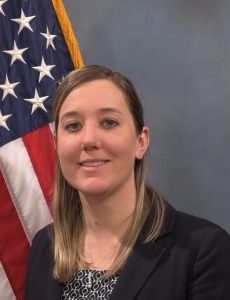 Anastasia Kozup
Anastasia Kozup
Army DEVCOM AvMC Technology Development Directorate
Department of the U.S. Army
Email: anastasia.j.kozup.civ@mail.mil
Ms. Anastasia Kozup is the Engines Technical Area Lead for the Technology Development Directorate – Aviation Technology Systems Integration & Demonstration at Fort Eustis, VA that is a part of the U.S. Army Combat Capabilities Development Command Aviation and Missile Center (AvMC). AvMC is the Army’s focal point for providing research, development, and engineering technology and services for aviation and missile platforms across the life cycle.
Ms. Kozup leads the execution of propulsion 6.2 and 6.3 S&T programs for the Army. Ms. Kozup received bachelor’s degrees in mechanical and aerospace engineering from West Virginia University, and a master’s degree in engineering management from The George Washington University. She is a member of the propulsion committee for the Vertical Flight Society and is the Army lead on the ATTAM Steering Committee.
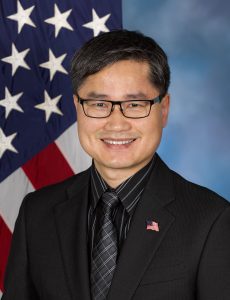 Dr. Chol-Bum “Mike” Kweon
Dr. Chol-Bum “Mike” Kweon
PM, Versatile Tactical Power and Propulsion ERP
Computational and Information Sciences Directorate
Department of the U.S. Army
Email: chol-bum.m.kweon2.civ@mail.mil
Dr. Chol-Bum “Mike” Kweon is Program Manager for Versatile Tactical Power and Propulsion Essential Research Program (VICTOR ERP) at the DEVCOM-Army Research Laboratory (DEVCOM-ARL) at Aberdeen Proving Ground (APG), MD. He is responsible for managing one of the ARL’s 10 Corporate Programs. Prior to this position, he was the Propulsion Division Chief of the Vehicle Technology Directorate (VTD) of the U.S. Army Research Laboratory.
Since 2010, Dr. Kweon established multiple DoD unique experimental capabilities within ARL including the ARL Spray Combustion Research Laboratory, the Small Engine Combustion Research Laboratory, and the Small Engine Altitude Research Facility. Dr. Kweon has developed numerous collaborations with industry, academia and other agencies via the ARL’s Open Campus initiative and ARL Extended Campuses. He also developed a strong long-term collaborations with DEVCOM-Aviation and Missile Center, PM UAS and OEMs to support the Army’s primary UAS aircraft programs which brought in tens of million dollar Reimbursable, Direct Site and TSA funds to ARL. In 2018, Dr. Kweon founded Center for UAS Propulsion or CUP which serves as a foundation to accelerate the development of future UAS power and propulsion capabilities for the Warfighter.
Prior to ARL, Dr. Kweon worked for Delphi Advanced Powertrain to research advanced combustion processes and engine concepts including the Gasoline Direct-injection Compression Ignition (GDCI) which has been funded by the DoE since 2009. Dr. Kweon named the GDCI which is currently researched around the world. Prior to Delphi, Dr. Kweon worked for General Motors (GM) Research, Development and Planning in Warren, MI to research cylinder pressure-based combustion control and advanced combustion processes, and develop the next generation Duramax engines. He also worked for GM Powertrain in Pontiac, MI to develop passenger car diesel engines. Prior to GM, he worked for Gas Technology Institute where he established new natural gas engine research capabilities and researched advanced natural gas engine and fuel reforming technologies.
Dr. Kweon received his Doctoral Degree in Mechanical Engineering (major) and Chemical Engineering/Mathematics (minor) from the University of Wisconsin-Madison in 2002. He received his Masters Degree in Mechanical Engineering from the same school in 1999. Dr. Kweon holds multiple leadership roles in Team Propulsion, Propulsion and Power Systems Alliance, and Multi-Agency Combustion Research Coordinating Committee. He is also a key member of Ground & Sea Platform COI Mobility, Advanced Turbine Technologies for Affordable Mission Capability (ATTAM)/Energy Optimized Aircraft (EOA) and PM UAS Futures IPT.
Dr. Kweon received 3 Civilian Service Commendation Medals (2020), 1 Civilian Service Commendation Medal (2019), 1 Achievement Medal for Civilian Service (2018), 2 Certificates of Achievement, 4 ARL Annual Honorary Awards since 2012 (2 Laboratory Operations, 1 Analysis and 1 Partnering), and Distinguished Performance Awards since 2011, and numerous other recognitions both in the Government and Industry. Dr. Kweon has more than 140 professional publication (internal and external) and over 30 intellectual properties.
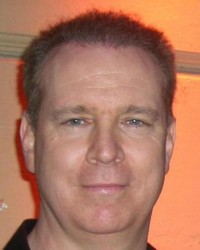 John E. Colbert
John E. Colbert
NAVAIR Propulsion & Power Small Business Innovative Research
Department of the Navy
Email: john.colbert@navy.mil
John Colbert is the program manager of the NAVAIR Propulsion & Power Small Business Innovative Research/Small Business Technology Transfer Program and the Section 219 Naval Innovative Science and Engineering Program. He also serves as deputy head of the NAVAIR Propulsion & Power Technology Office which guides the Naval Aviation Enterprise Science &Technology (S&T) Strategic Planning efforts. He is currently located at the Naval Air Station Patuxent River, MD.
As program manager, Mr. Colbert is responsible for program development, oversight of major NAVAIR-level or component/command-level programs relating to research, development, testing, evaluation, innovation, and re-engineering that impacts the work of other subject matter experts. He is also responsible for major system development and/or the direction of technology-based research which has the highest significance to NAVAIR needs. Mr. Colbert also promotes the spin-off/transfer of federally-owned or originated technology to state and local governments and to the private sector to help strengthen the U.S. industrial base since technology transfer is a NAVAIR strategic thrust and is required by law.
Mr. Colbert graduated with a Bachelor of Science in mechanical engineering from Drexel University and a Master of Business Administration from Rider University. He is a graduate of the NAVAIR Journey Leadership Development Program and has received the Naval Air Warfare Center – Aircraft Division Commander’s Award in 2014. He has over 35 years of experience in aviation fuels and combustion and has served as the Combustion Systems Team lead having supported virtually all NAVAIR legacy, development, and S&T programs.
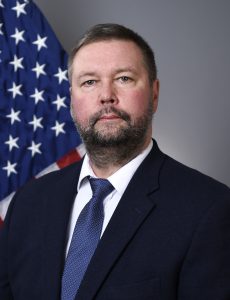 Dr. Steve Martens
Dr. Steve Martens
Office of Naval Research
Department of the Navy
Email: steve.martens@navy.mil
Dr. Steve Martens is currently the Propulsion, Power and Thermal Management Program Officer at The Office of Naval Research, Code 35 – Aviation, Force Projection and Integrated Defense. He manages a portfolio of Science and Technology programs to ready new technologies and capabilities for transition to the USN and USMC.
Prior to his current role, Dr. Martens spent 20+ years at GE Aviation and GE Global Research, where he developed a deep technical background in advanced propulsion, inlets and exhausts, unsteady aerodynamics and aeroacoustics. He holds a MS and PhD in Aerospace Engineering from The Pennsylvania State University.
